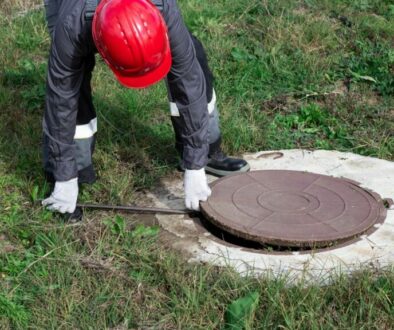How To Become A Juvenile Probation Officer?
Juvenile probation officers play a critical role in the criminal justice system, working closely with young individuals who have committed offenses. They are responsible for assessing the needs of each individual and developing a plan to help them reintegrate into society. If you are interested in pursuing a career as a juvenile probation officer, this article will guide you through the necessary steps and provide insight into the skills needed for success.
Steps To Becoming A Juvenile Probation Officer
Becoming a juvenile probation officer is a challenging and rewarding career path that requires dedication and hard work. If you are interested in pursuing this career, it is essential to understand the steps involved in becoming a licensed juvenile probation officer.
- Pursue Higher Education
The first step towards becoming a juvenile probation officer is to pursue higher education. Most employers require a minimum of a bachelor’s degree in a relevant field such as criminal justice, social work, or psychology. A degree in one of these fields will provide you with the knowledge and skills necessary to work effectively with young individuals with a history of criminal activity.
While pursuing your degree, it is important to take courses that focus on juvenile justice, criminology, and child development. These courses will provide you with a solid foundation of knowledge that will be invaluable in your career as a juvenile probation officer. - Gain Relevant Work Experience
After completing your degree, it is essential to gain relevant work experience in the criminal justice field. This can be done through internships or by working in related positions such as social work, parole or probation services, or law enforcement. Gaining experience in working with young individuals is particularly valuable.
Working in a related field will give you the opportunity to develop your skills and gain practical experience in managing the needs of young individuals with a history of criminal activity. This experience will be invaluable when you begin working as a juvenile probation officer. - Complete a Training Program or Academy
Following your work experience, prospective juvenile probation officers must complete a training program or academy. This typically includes classroom and fieldwork training to ensure that you are adequately prepared to manage the complex needs of young individuals with a history of criminal activity.
The training program or academy will cover a range of topics, including the legal system, juvenile justice, case management, and counseling techniques. You will also receive training in communication skills, conflict resolution, and crisis intervention. - Pass an Examination or Certification Process
Finally, you must pass an examination or certification process to become a licensed juvenile probation officer. The requirements for licensing vary by state, so it is important to research the specific requirements in your state.
The examination or certification process will test your knowledge of juvenile justice, case management, and counseling techniques. You will also be required to demonstrate your communication skills, conflict resolution abilities, and crisis intervention techniques.
Once you have completed all of these steps, you will be well-prepared to begin your career as a juvenile probation officer. This career path is challenging, but it is also incredibly rewarding. As a juvenile probation officer, you will have the opportunity to make a positive impact on the lives of young individuals who are in need of guidance and support.
Skills Needed to Become a Probation Officer
In addition to the skills mentioned above, there are other qualities that can make a successful juvenile probation officer. For instance, having a strong sense of ethics and integrity is essential. Juvenile probation officers must make difficult decisions that can have a significant impact on the lives of young individuals. Therefore, it is crucial to have a strong moral compass and a commitment to doing what is right, even when it is not easy.
Another critical attribute is cultural competence. Juvenile probation officers work with individuals from diverse backgrounds, and it is important to be aware of and sensitive to cultural differences. This includes understanding the impact of racism, discrimination, and other social factors on individuals and their families.
Furthermore, having a solid understanding of the legal system and the juvenile justice system is vital. Juvenile probation officers must be familiar with laws, regulations, and policies that govern their work. They must also understand the roles and responsibilities of other professionals in the justice system, such as judges, attorneys, and social workers.
Lastly, a successful juvenile probation officer must be committed to ongoing learning and professional development. The field of juvenile justice is constantly evolving, and it is essential to stay up-to-date with the latest research, trends, and best practices. This can include attending training sessions, conferences, and workshops, as well as seeking out opportunities for mentorship and networking.
Becoming a juvenile probation officer requires a diverse set of skills, personal attributes, and knowledge. Effective communication, time management, empathy, ethics, cultural competence, legal expertise, and a commitment to ongoing learning are all essential for success in this challenging and rewarding career.
What is a Juvenile Probation Officer?
Working as a juvenile probation officer can be a challenging yet rewarding career. These professionals play a critical role in the rehabilitation of young individuals and in reducing recidivism rates.
One of the most important aspects of a juvenile probation officer’s job is to build a rapport with the young people they work with. This requires a great deal of patience, empathy, and understanding. It is essential for the probation officer to be able to communicate effectively with the youth and gain their trust.
In addition to working with young individuals, juvenile probation officers also collaborate with other professionals in the criminal justice system, such as judges, attorneys, and social workers. They work together to develop plans that will best serve the needs of the youth and the community.
Another critical aspect of a juvenile probation officer’s job is to stay up to date with the latest research and best practices in the field. This means attending trainings and conferences and staying informed about new developments and trends in juvenile justice.
Overall, the role of a juvenile probation officer is vital in helping young individuals turn their lives around and become productive members of society. It requires a unique set of skills and a deep commitment to making a positive difference in the lives of others.
The Benefits of Working as A Juvenile Probation Officer
Working as a juvenile probation officer can be a highly rewarding career. One of the key benefits is the opportunity to make a positive impact on the lives of young individuals. By helping individuals make positive changes, probation officers can contribute to the safety and well-being of their communities.
As a juvenile probation officer, you will be responsible for supervising and monitoring young people who have been placed on probation. You will work with them to develop a plan for rehabilitation, which may include counseling, community service, and other interventions. By building a relationship with your clients, you can help them to develop the skills they need to succeed in life.
In addition to working with young people, juvenile probation officers also work closely with other professionals in the criminal justice system. This can include judges, attorneys, social workers, and law enforcement officers. By collaborating with these professionals, probation officers can ensure that their clients receive the support they need to succeed.
Another benefit of working as a juvenile probation officer is the opportunity for career growth and advancement. With experience and additional training, probation officers can advance to higher positions within the criminal justice system, such as management or supervisory roles. These roles offer greater responsibility and the opportunity to make an even greater impact on the lives of young people.
However, working as a juvenile probation officer can also be challenging. The job requires a high level of patience, empathy, and compassion. You may encounter clients who are resistant to change, or who have experienced significant trauma in their lives. It is important to be able to remain calm and professional in these situations, while still providing the support and guidance that your clients need.
Overall, becoming a juvenile probation officer requires a combination of education, experience, and personal qualities. A bachelor’s degree in criminal justice, social work, or a related field is typically required, as well as experience working with young people. Personal qualities such as strong communication skills, the ability to build relationships, and a commitment to social justice are also essential.
Working as a juvenile probation officer can be a challenging and rewarding career with a significant impact on individuals and communities. By helping young people to make positive changes in their lives, probation officers can contribute to a safer and more just society.




